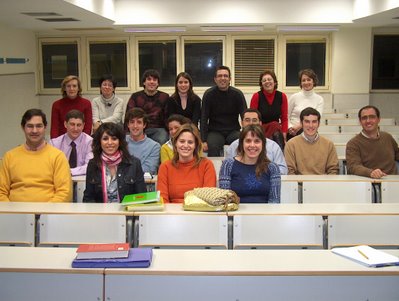Phrasal verbs, also known as multi-word verbs, can be intransitive (not followed by a direct object; Type 1) or transitive (followed by a direct object; Types 2 and 3).
Examples of intransitive phrasal verbs (type 1):get up, sit down, go out, turn round, grow up
Examples of transitive phrasal verbs (type 3):
pick up, try on, fill in, pay back, throw away
When a phrasal verb has a direct object, the two parts of the verb can usually be separated (type 3); the adverb particle can be put before or after the object (⇔): Don’t throw away those letters! I want to keep them. OR Don’t throw those letters away.
When the object is a pronoun, the adverb particle can only go after the object: Don´t throw it/that away! NOT *Don’t throw away it/that!
However, some phrasal verbs are inseparable (⇒). They always have objects but can never be separated by them (type 2): I looked for my book but couldn’t find it. NOT *I looked my book for.
These verbs are sometimes separated by adverbs: I looked everywhere for my book.
Examples of intransitive phrasal verbs (type 1):get up, sit down, go out, turn round, grow up
Examples of transitive phrasal verbs (type 3):
pick up, try on, fill in, pay back, throw away
When a phrasal verb has a direct object, the two parts of the verb can usually be separated (type 3); the adverb particle can be put before or after the object (⇔): Don’t throw away those letters! I want to keep them. OR Don’t throw those letters away.
When the object is a pronoun, the adverb particle can only go after the object: Don´t throw it/that away! NOT *Don’t throw away it/that!
However, some phrasal verbs are inseparable (⇒). They always have objects but can never be separated by them (type 2): I looked for my book but couldn’t find it. NOT *I looked my book for.
These verbs are sometimes separated by adverbs: I looked everywhere for my book.
Examples of inseparable phrasal verbs (type 2):
look after, break into, go on, get on/off
Some phrasal verbs have an extra preposition: get away with, look forward to, get on with
These phrasal verbs always have objects but most of them cannot be separated by them: We’re looking forward to our holiday. NOT *We’re looking our holiday forward to.
In the multi-word verb exercise in the exam, you will probably have to use all types of phrasal verbs. Look carefully at the instructions and don’t forget to use pronouns where necessary.
Multi-word verb exercise. Complete with the correct verb form from the list below and add the particle(s). Add object pronouns if necessary. Verbs can be used more than once or not at all.
LOOK FILL GET TURN PICK PAY PULL
1. They didn’t ____________________ the crime. The police caught them last week.
2. I’ve dropped all my photocopies. Could you help me to ___________________?
3. John’s lent me some money but I can’t __________________ until next month.
4. I can’t see very well. Can you __________________ the light, please?
5. Sue and Jack want to go out on Saturday but they don’t want to leave the children at home alone, so they’ve asked me to ____________________ .
6. If you would like to apply for the job, you need to ___________________ this form and send it to us as soon as possible.
Some phrasal verbs have an extra preposition: get away with, look forward to, get on with
These phrasal verbs always have objects but most of them cannot be separated by them: We’re looking forward to our holiday. NOT *We’re looking our holiday forward to.
In the multi-word verb exercise in the exam, you will probably have to use all types of phrasal verbs. Look carefully at the instructions and don’t forget to use pronouns where necessary.
Multi-word verb exercise. Complete with the correct verb form from the list below and add the particle(s). Add object pronouns if necessary. Verbs can be used more than once or not at all.
LOOK FILL GET TURN PICK PAY PULL
1. They didn’t ____________________ the crime. The police caught them last week.
2. I’ve dropped all my photocopies. Could you help me to ___________________?
3. John’s lent me some money but I can’t __________________ until next month.
4. I can’t see very well. Can you __________________ the light, please?
5. Sue and Jack want to go out on Saturday but they don’t want to leave the children at home alone, so they’ve asked me to ____________________ .
6. If you would like to apply for the job, you need to ___________________ this form and send it to us as soon as possible.









.JPG)